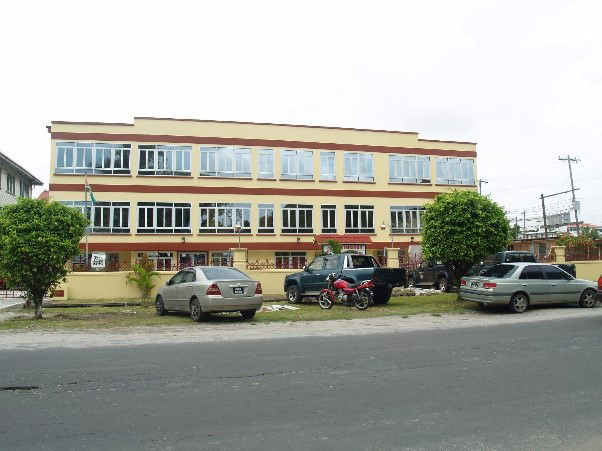In wake of the recent unrest at the Lusignan Prison, inmates have raised a number of concerns—among them overcrowding at the penal facility which they say has become unbearable and frustrating.
To this end the irate prisoners in videos which have gone viral have bemoaned the fact that they are not getting their day in court for trials, while others who may otherwise stand a chance for parole release are unable to have their petitions dealt with since the life of the Parole Board ended in June and it is yet to be reconstituted.
This has added to the frustration of many inmates whose relatives have lamented the sloth in having the Board back up and running to serve the cause of prisoners.
It currently remains unclear when the Board will be reconstituted, as a number of calls to Minister of Home Affairs Robeson Benn to so ascertain have proved futile.
The granting of parole is one means through which prison populations can be decreased and controlled.
Like it has caused in all other sectors, the Coronavirus (COVID-19) pandemic has not spared the justice sector of having to halt and rethink the manner in which it traditionally operated as it grappled with the crippling effects of this deadly disease.
After the country recorded its first case and death by the virus back in March, the courts have had to issue new practice directions which had to take into account universally adopted COVID-19 guidelines aimed at stemming the spread of the virus.
Among the protocols issued by the World Health Organization (WHO) was the need for social- distancing and as far as possible working remotely.
In the immediate days and months following the first recorded death from the virus, the requirement for these two protocols to be followed made it increasingly difficult for criminal trials to be conducted—especially in the High Court where a large pool of potential jurors are required for jury selection to hear and determine cases.
Trials not being able to be conducted had a direct impact on the swelling prison population.
But though the judiciary has announced that trials will commence on October 6th having put in place the required modalities for the safe resumption of criminal hearings given the pandemic, the hope of the set of prisoners banking on parole hangs in the balance.
The life of the Board which ran for two years ended in June and it is yet to be reconstituted.
Ordinarily, this would have been done prior to the expiration so as to ensure the continuity of the Board’s work. Stabroek News understands, however, that given the five-month impasse which followed the March 2nd general and regional elections, this process could not be facilitated.
The reconstitution of the Board requires approval by Cabinet.
During the elections impasse which preceded the eventual declaration, the work of such and other state boards ground to a halt as no Cabinet was in place to grant approvals for extensions.
Following a series of legal cases, a declaration was finally made on August 2nd that it was the People’s Progressive Party/Civic (PPP/C) which had emerged victorious at the contentious polls over the A Partnership for National Unity + Alliance For Change (APNU+AFC).
With tomorrow being almost two months since the Irfaan Ali-led Administration was sworn into office, prisoners who have applied for parole are no closer to having answers regarding the status of their petitions.
A family member of an inmate who spoke to this newspaper on condition of anonymity expressed her frustration at repeatedly contacting the Parole Board of the Ministry of Home Affairs and being told that the Board is not currently functional.
The clearly frustrated woman said that this has been the repeated response she has been getting for months, without any clear indication of when the Board will be working again even as she questioned “when will it end? How long we have to wait?”
In frustration she added, “nobody ain’t really telling yuh nothing proper that you could work with, just that the Board ain’t working now; but dem still ain’t saying when it gun be working again.”
The relative said she was particularly concerned because of the alarming number of prisoners who have since tested positive for COVID-19.
“I would hate to know he (the prisoner) die in deh because of COVID when he could ah possibly be out (of prison) months ago on parole,” she lamented.
The relative related to Stabroek News that the prisoner is fearful of contracting the virus—a fear she said he shares with a number of other inmates.
Over the past two days, Stabroek News has made several unsuccessful attempts to contact Benn in an effort to ascertain when Cabinet is likely to give attention to the issue of reconstituting the Board.
On September 19th, two prisoners were fatally shot by guards and five others were wounded after what authorities have described as a riot and attempted breakout at the Lusignan Prison.
The shooting capped off hours of protests by inmates over a number of issues, including overcrowding at the facility and the risk of exposure to COVID-19, which were raised earlier in the day when Benn and Minister of Health Dr Frank Anthony visited.
Overcrowding at the facility has been a longstanding concern.
Just days before, unrest erupted at the prison after two inmates tested positive for COVID-19.
About a week after it was confirmed that a total of 140 inmates had contracted the disease.








